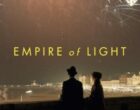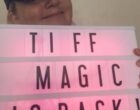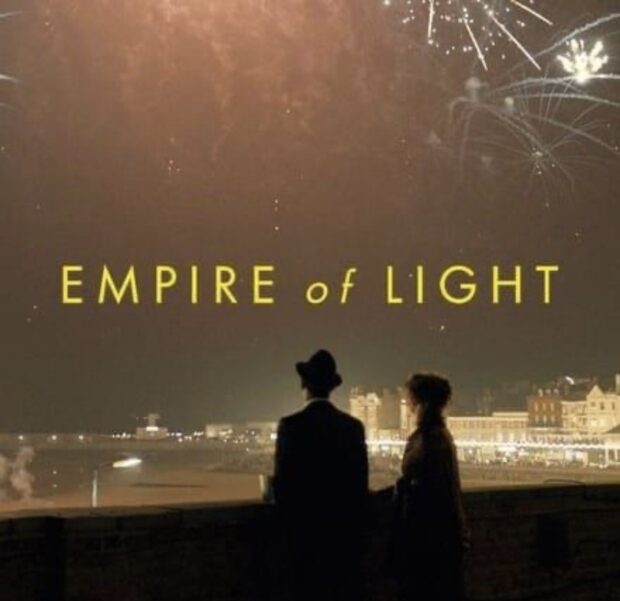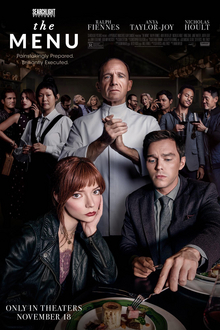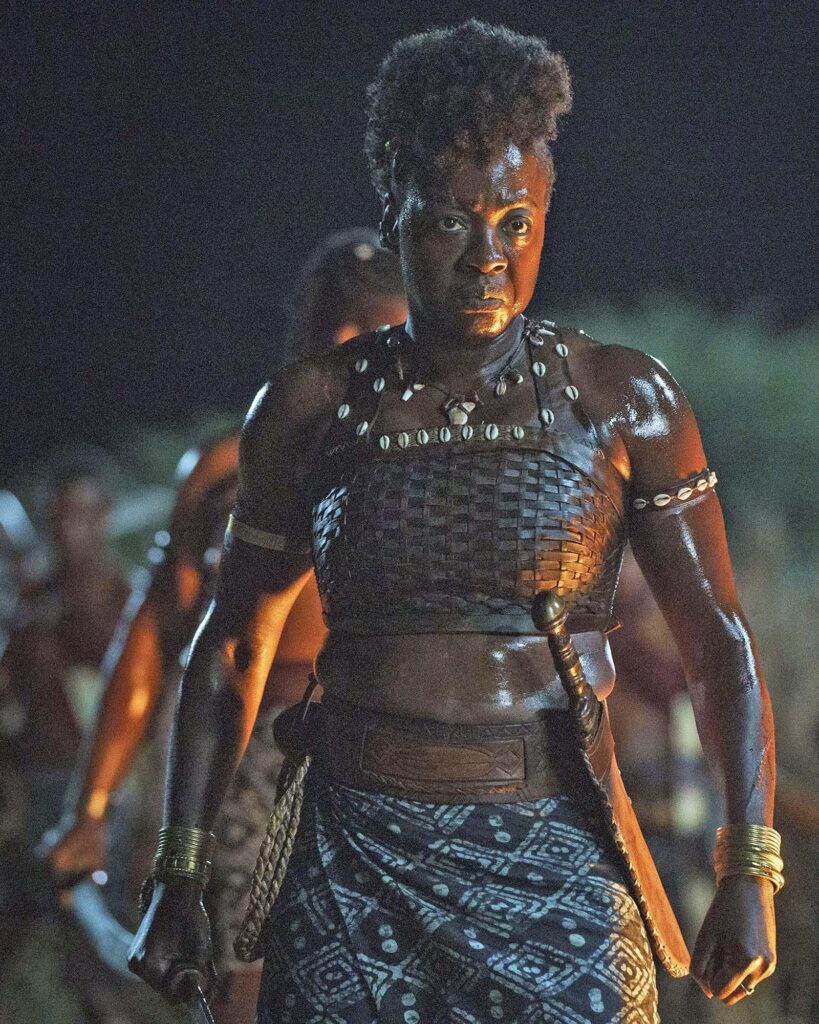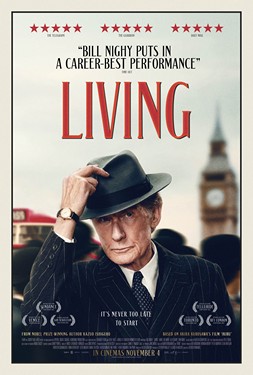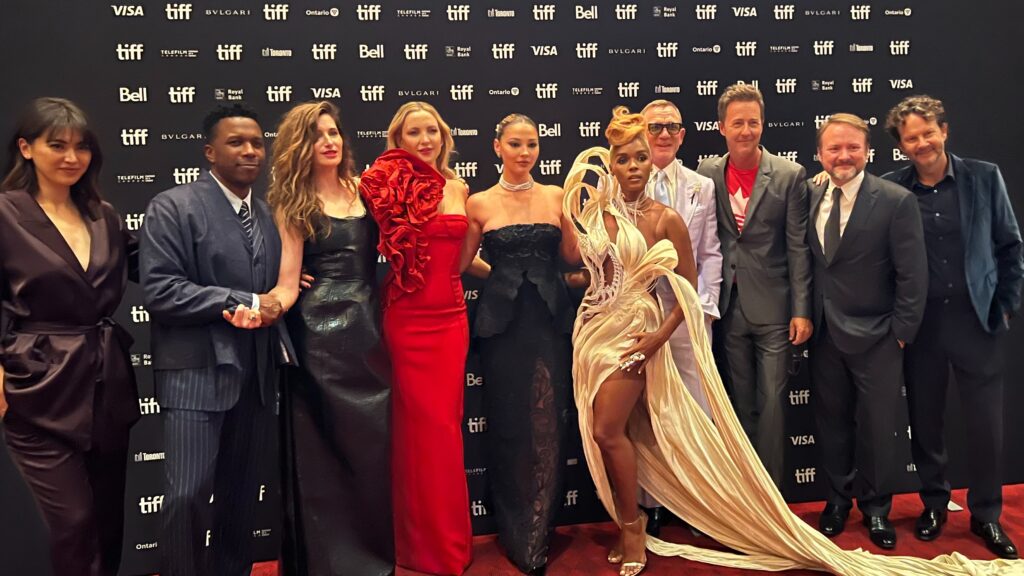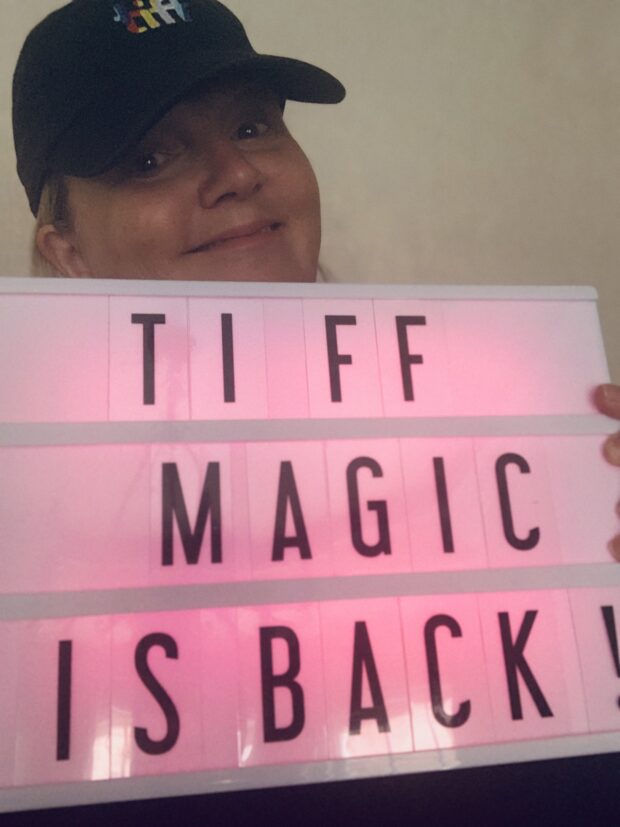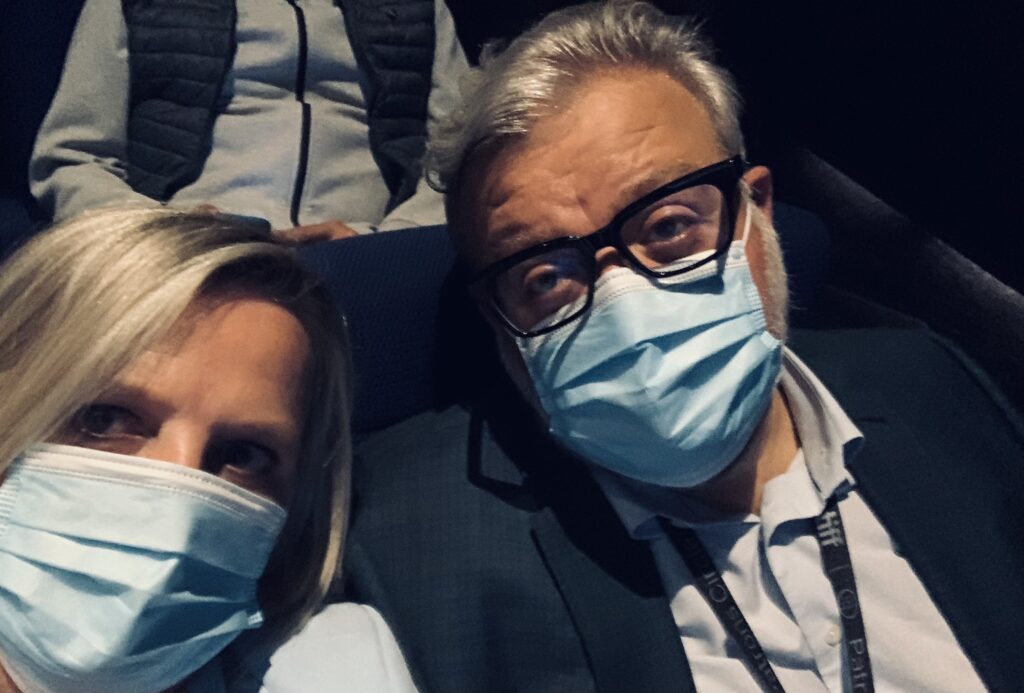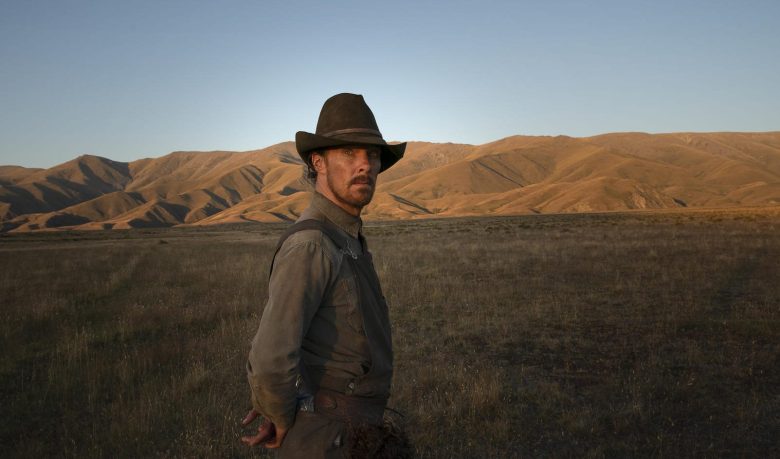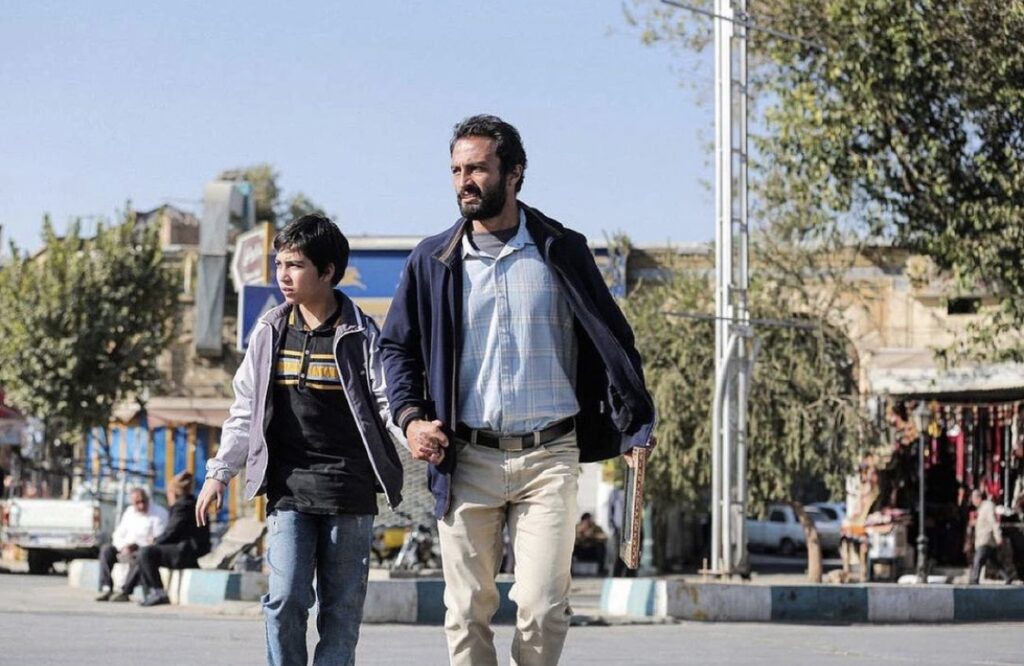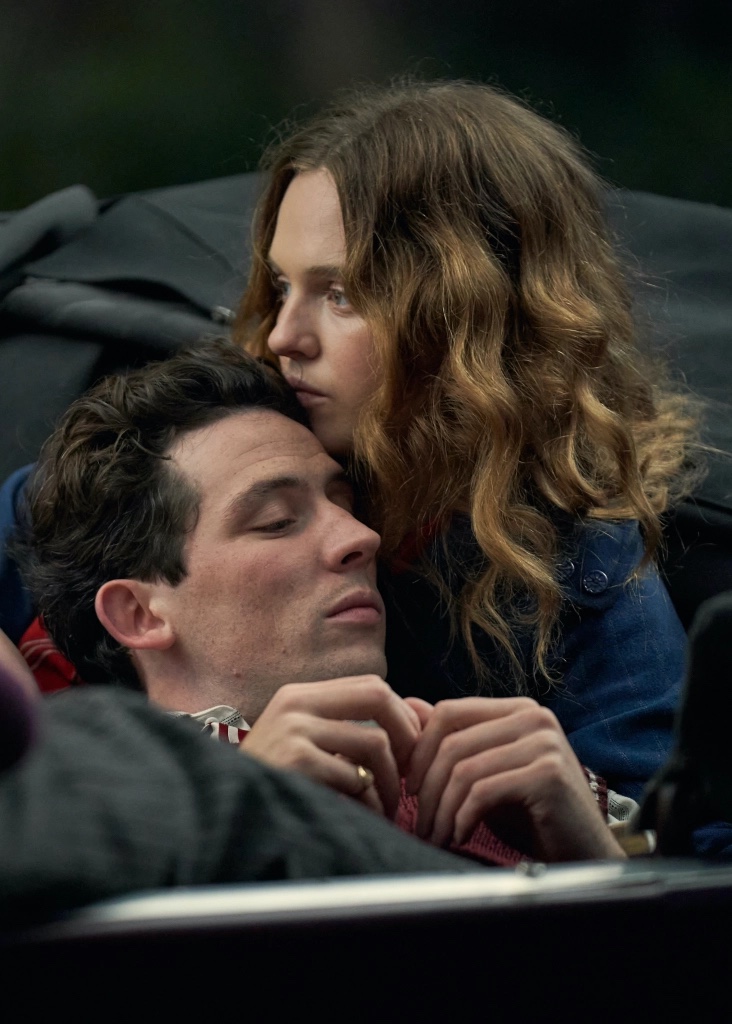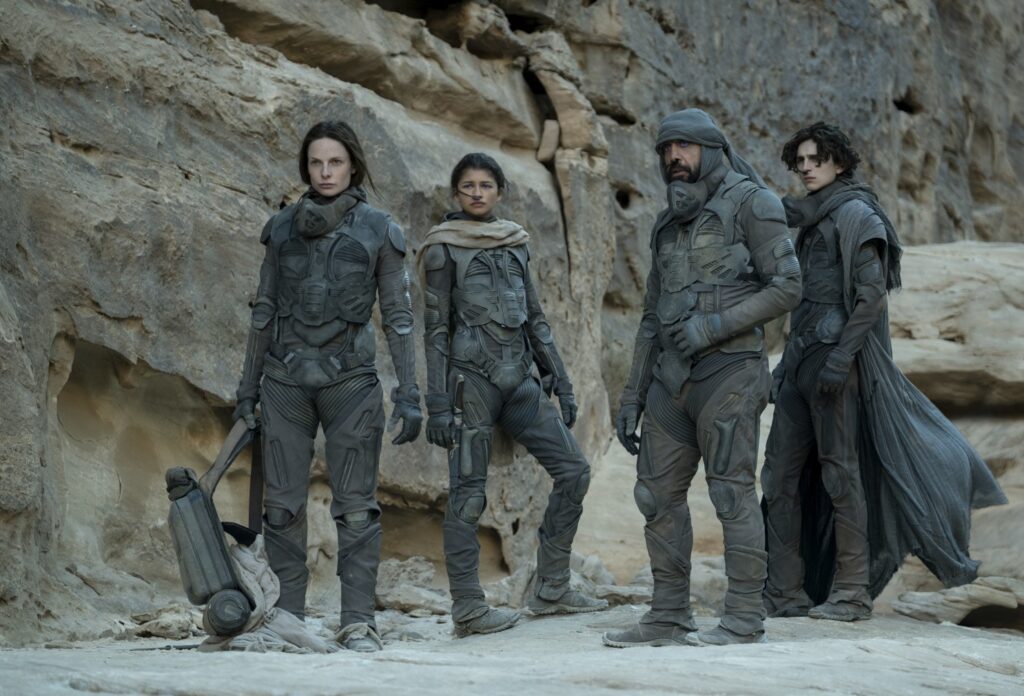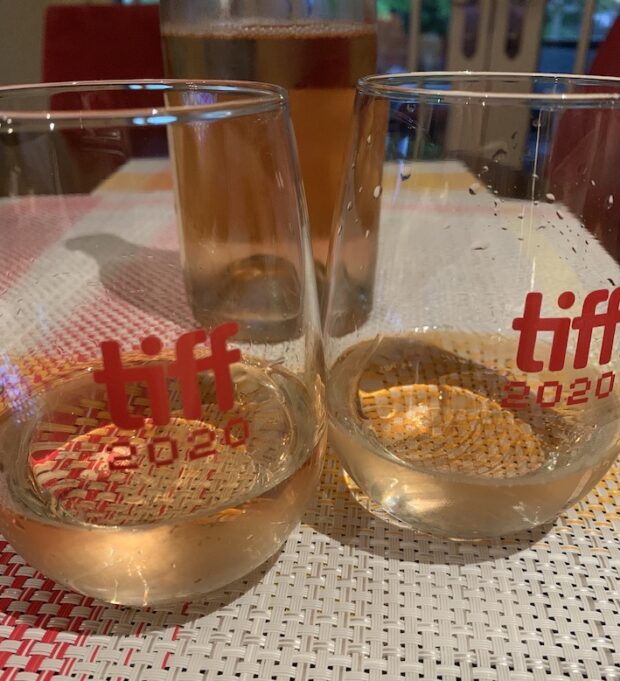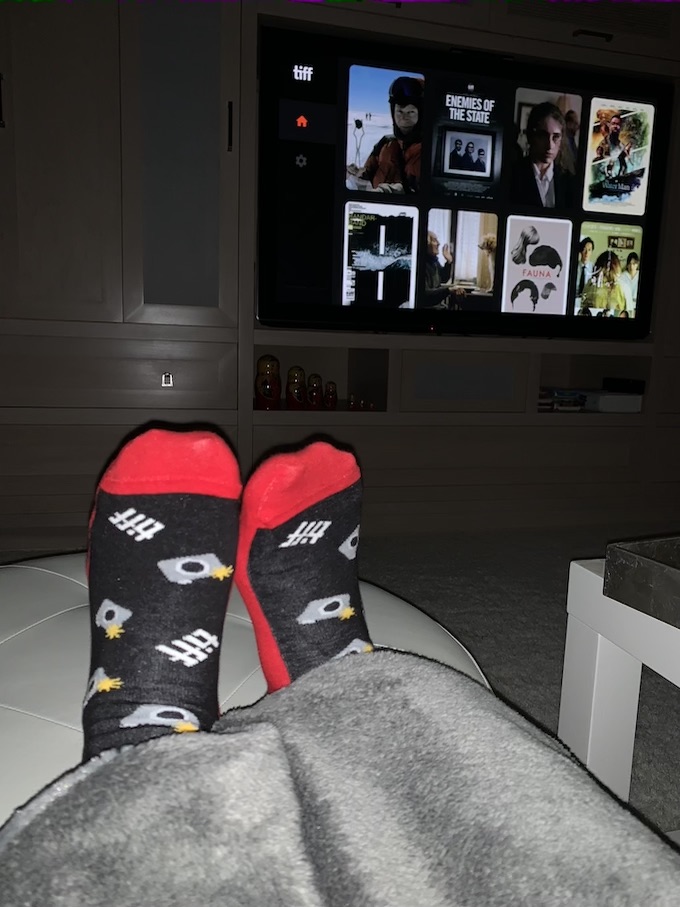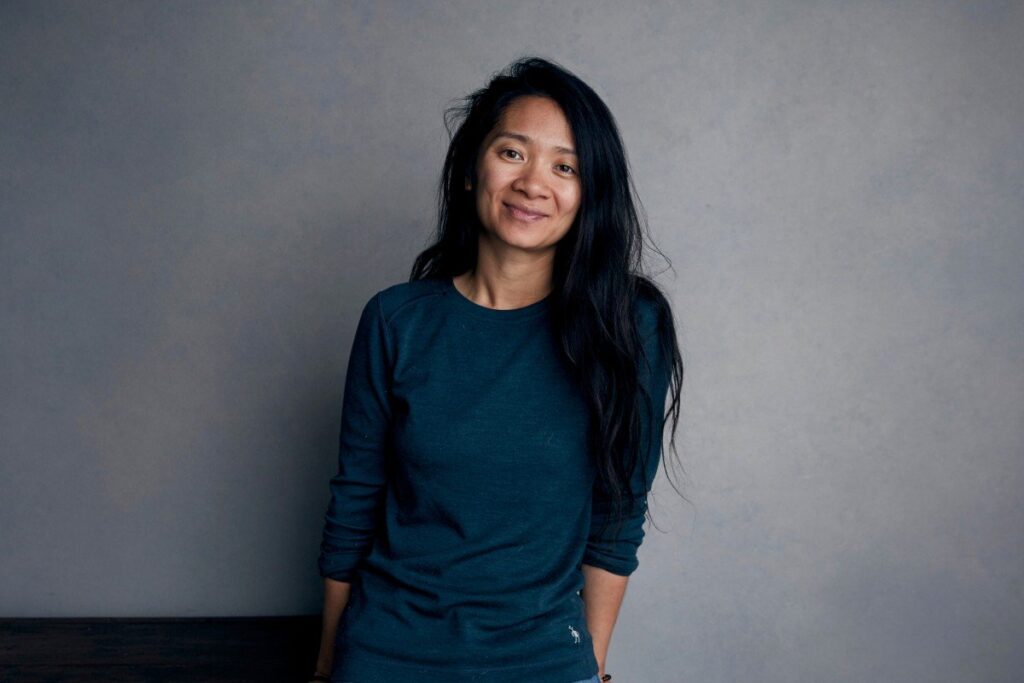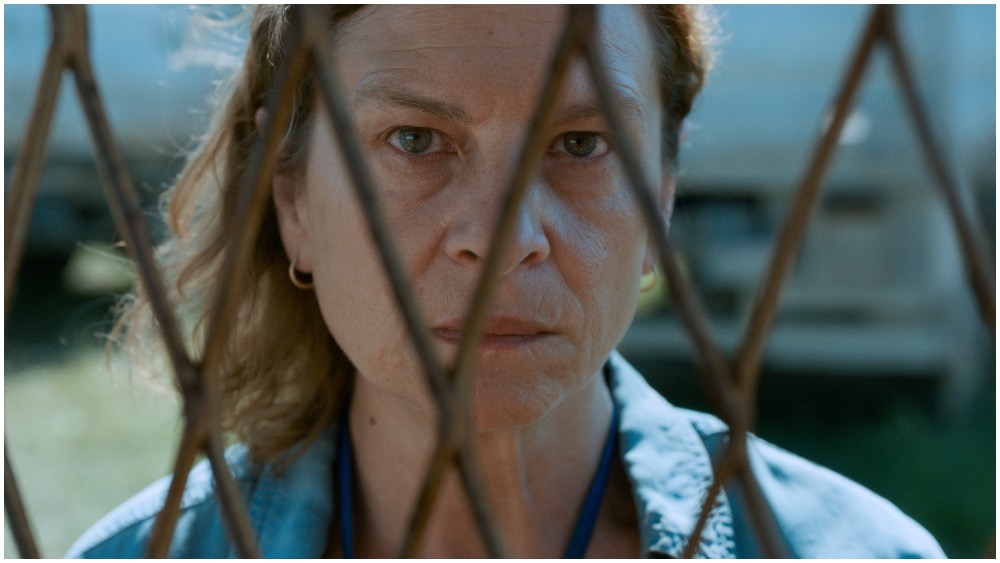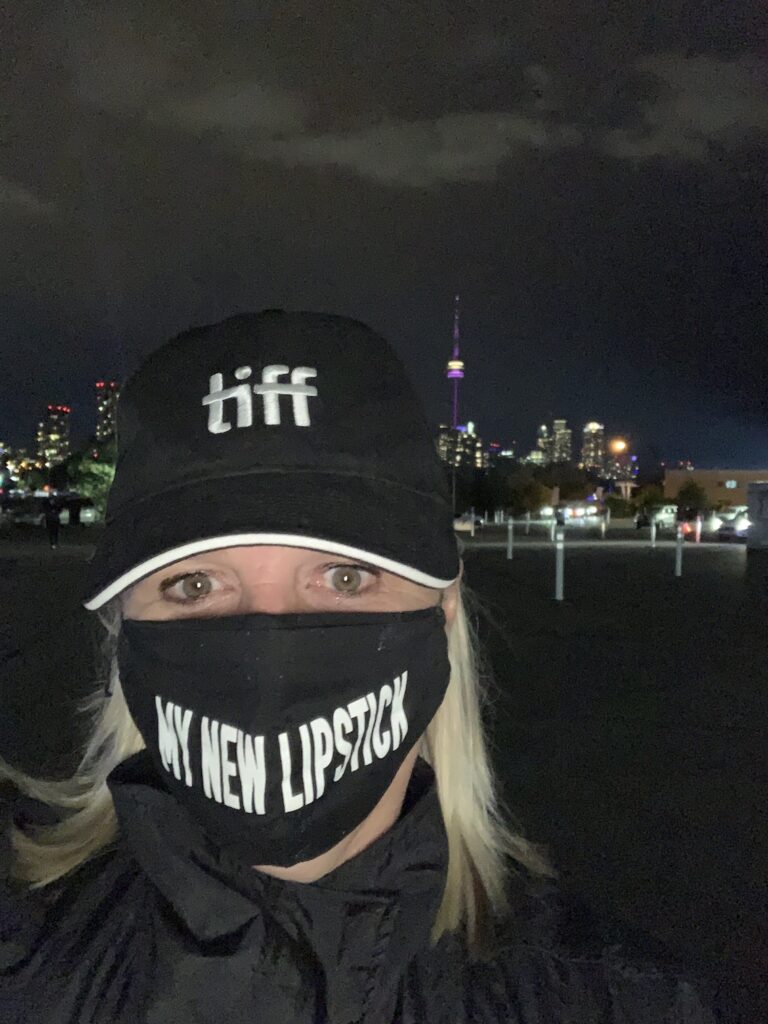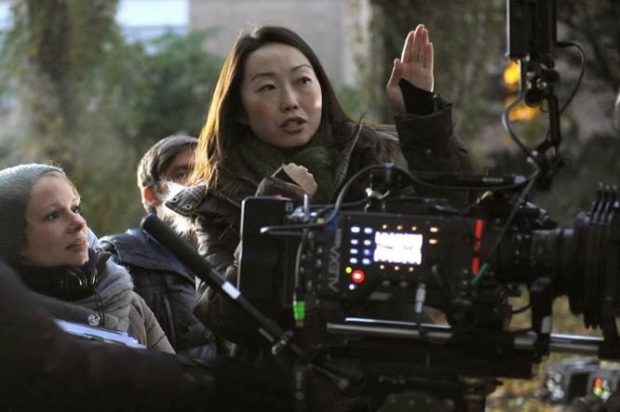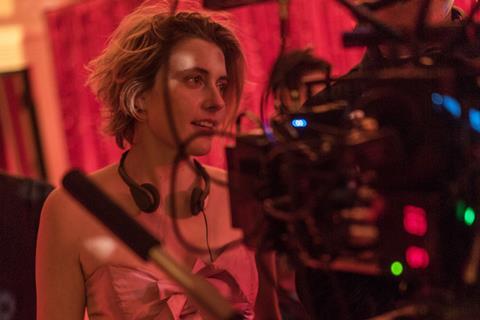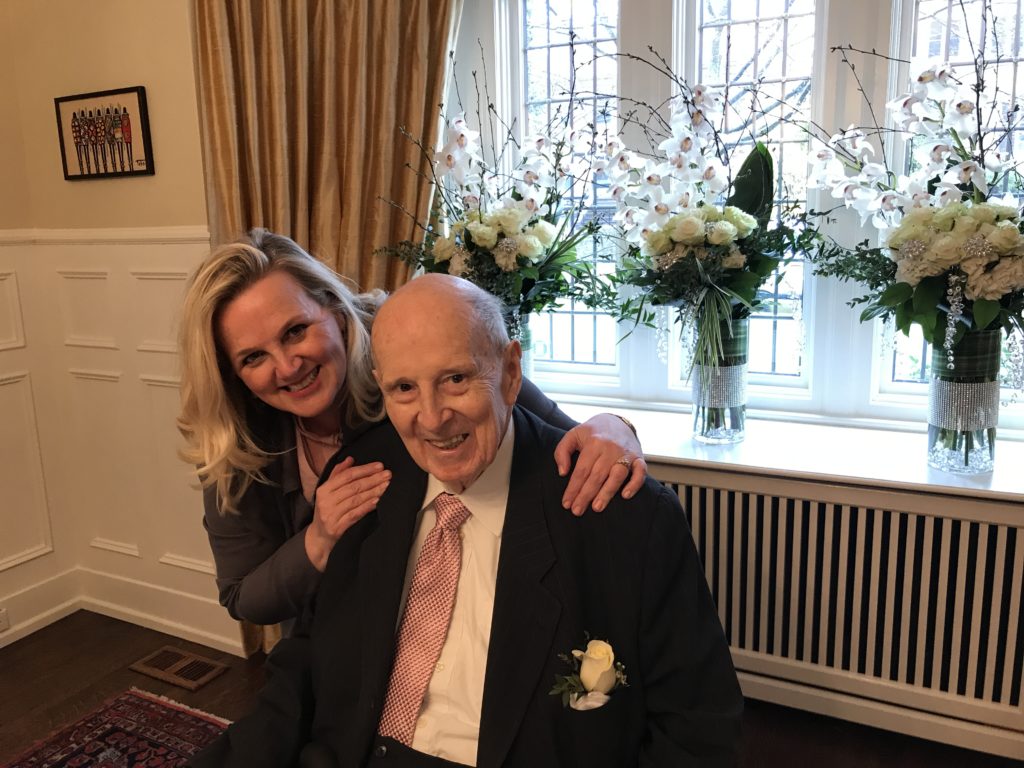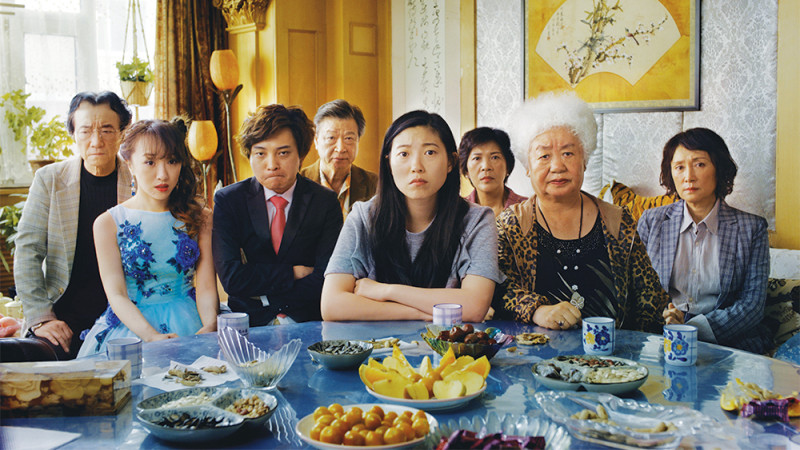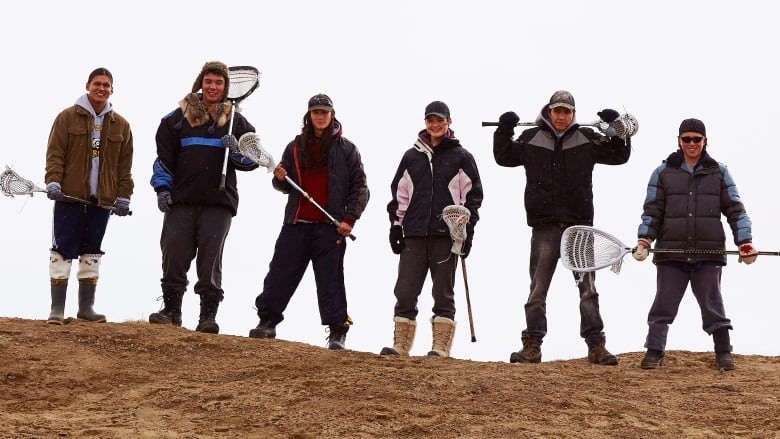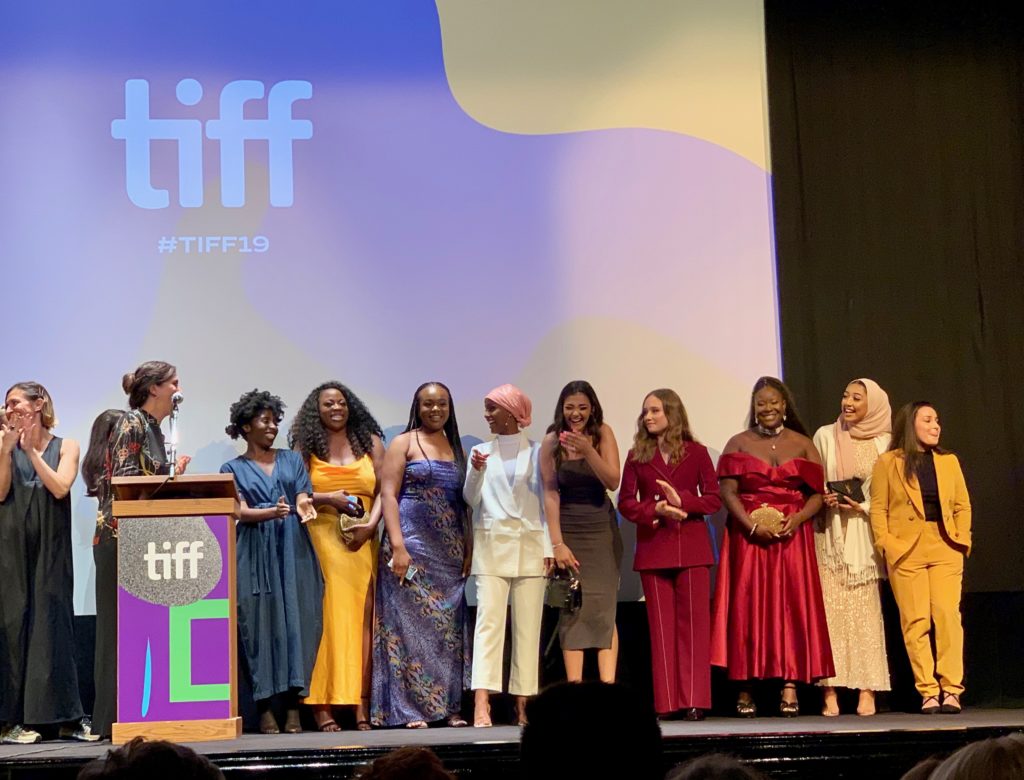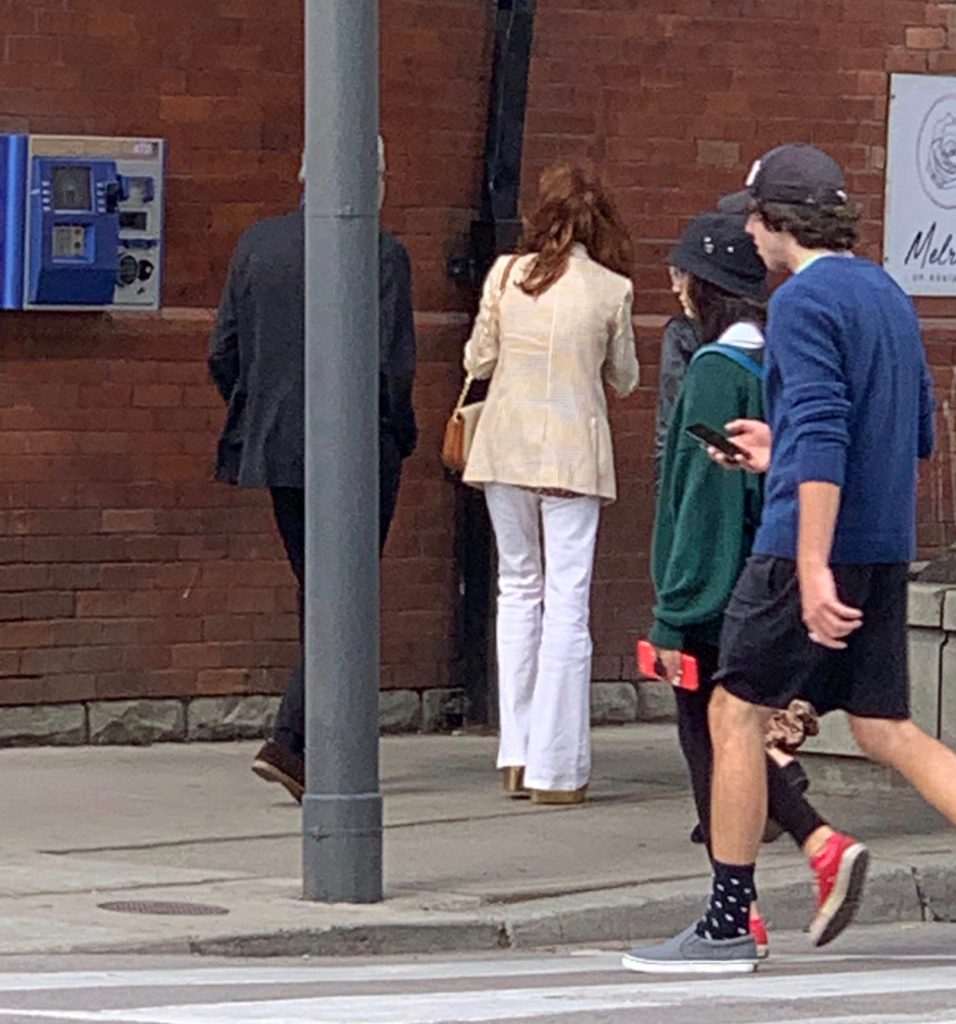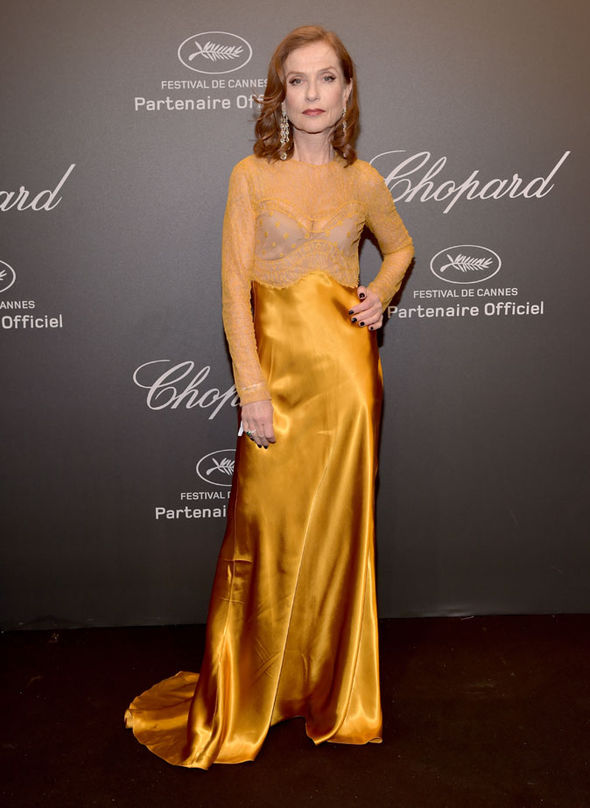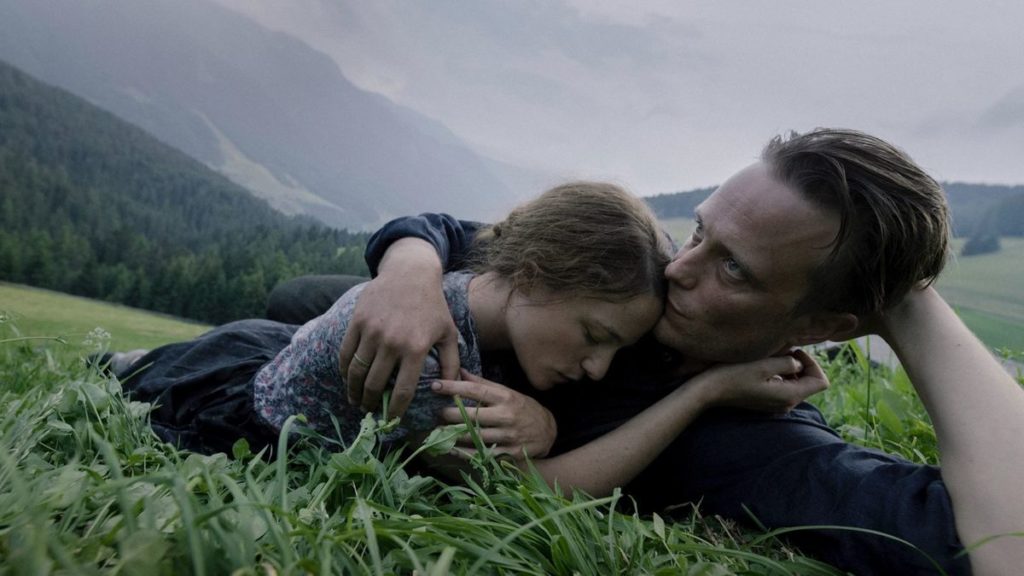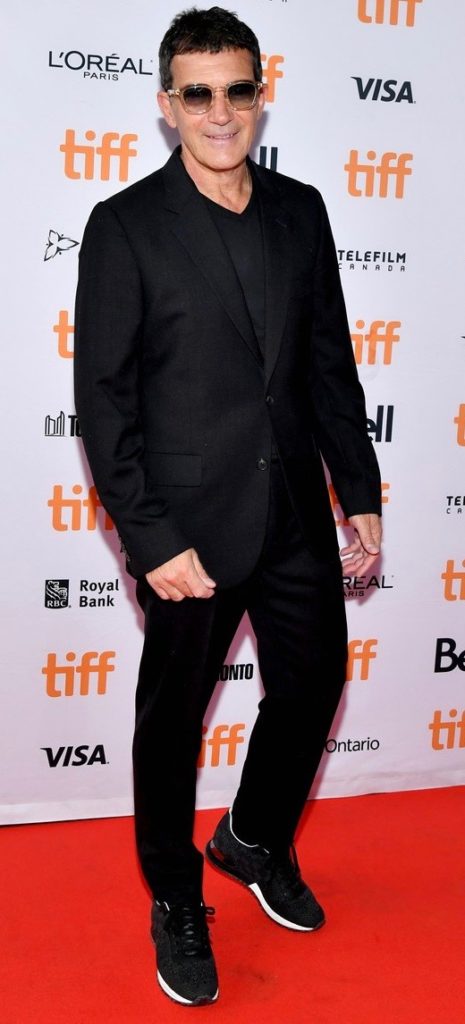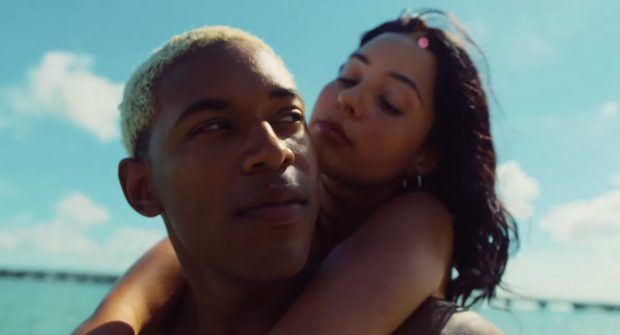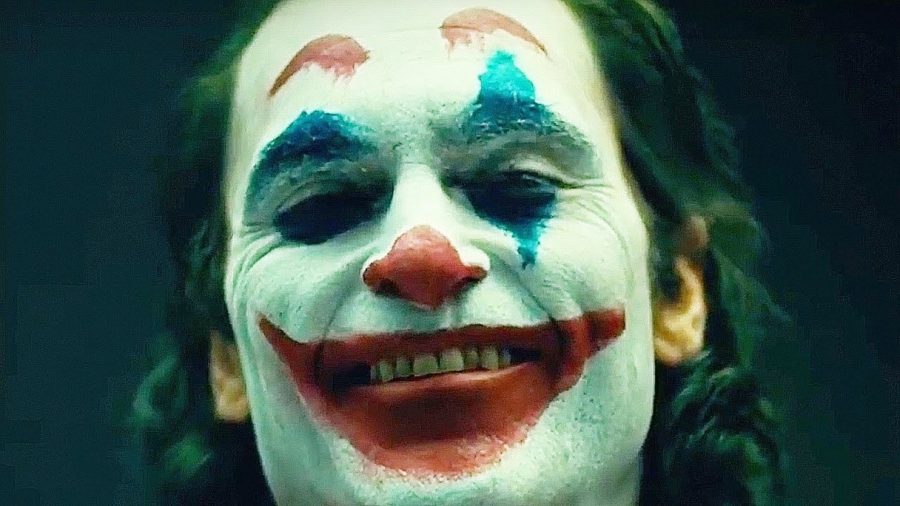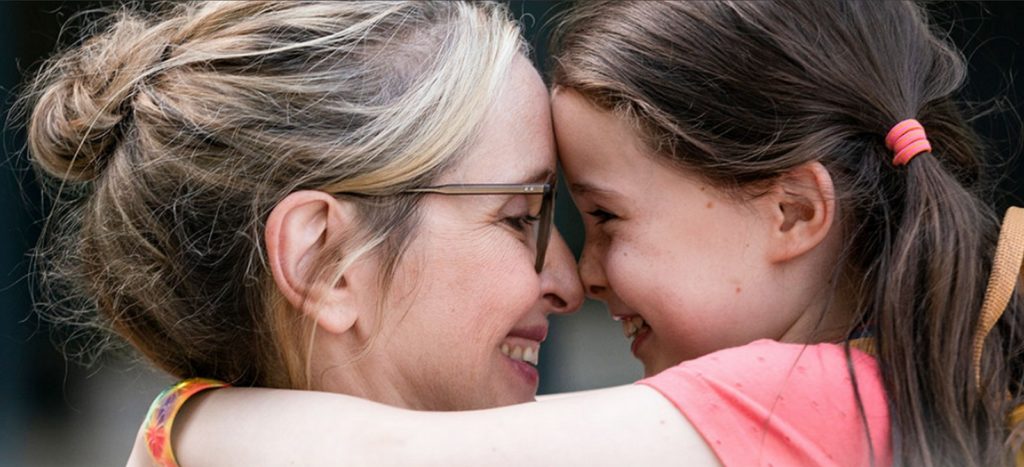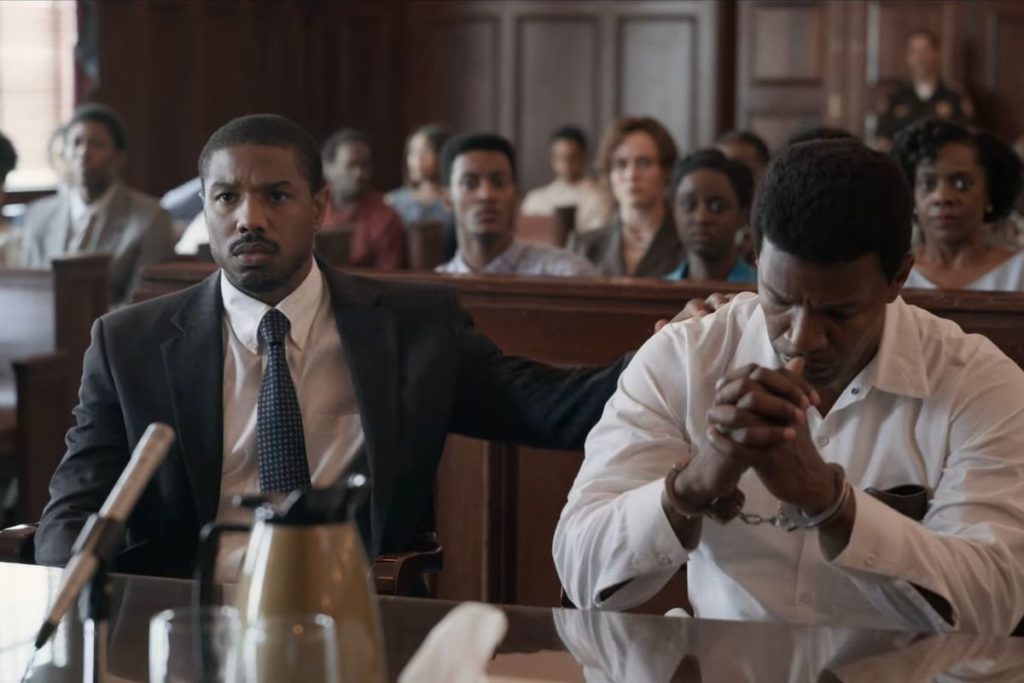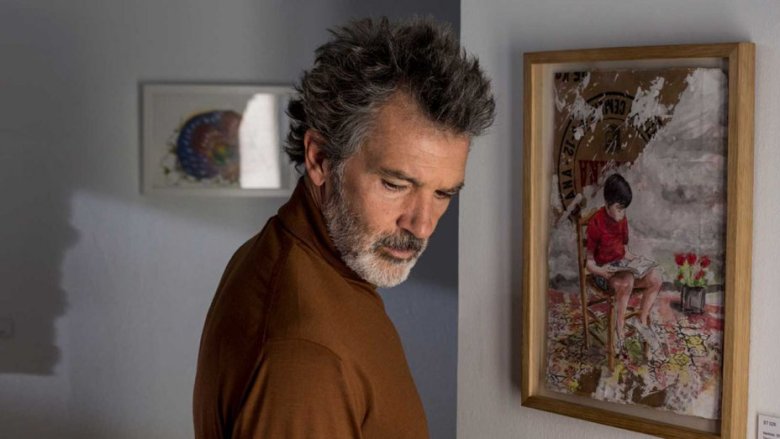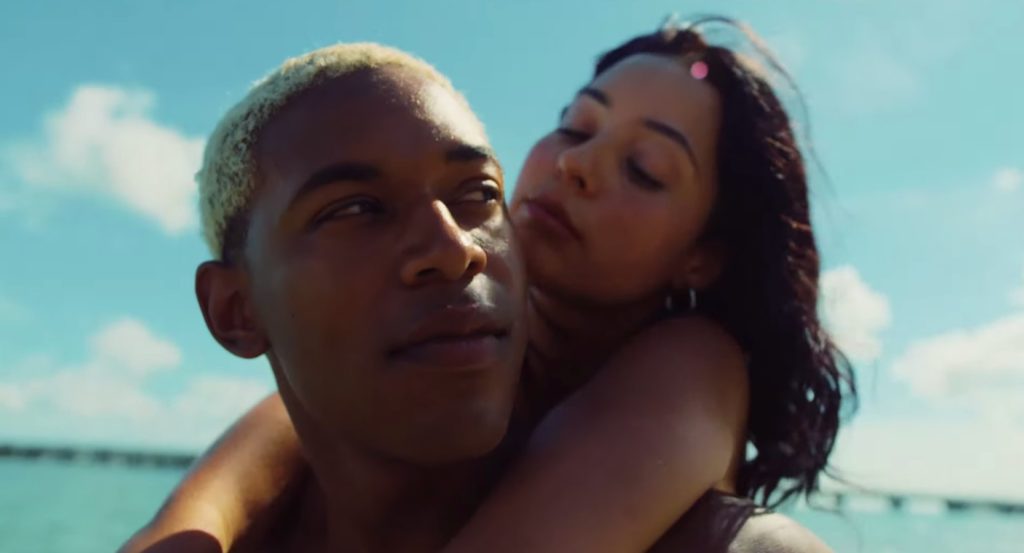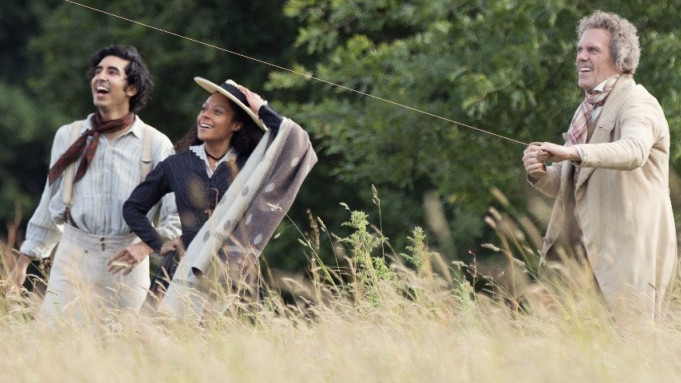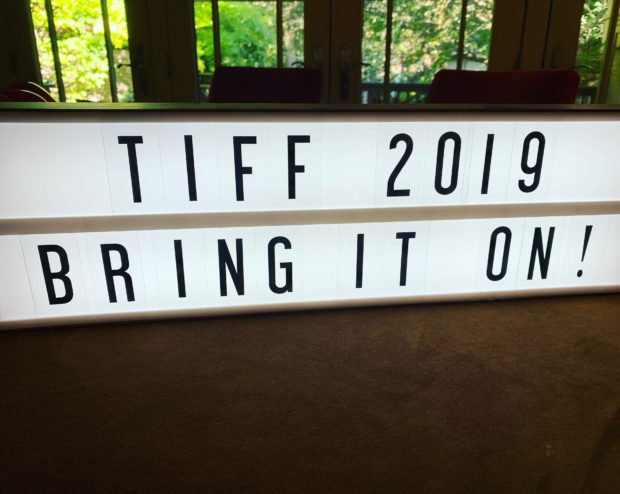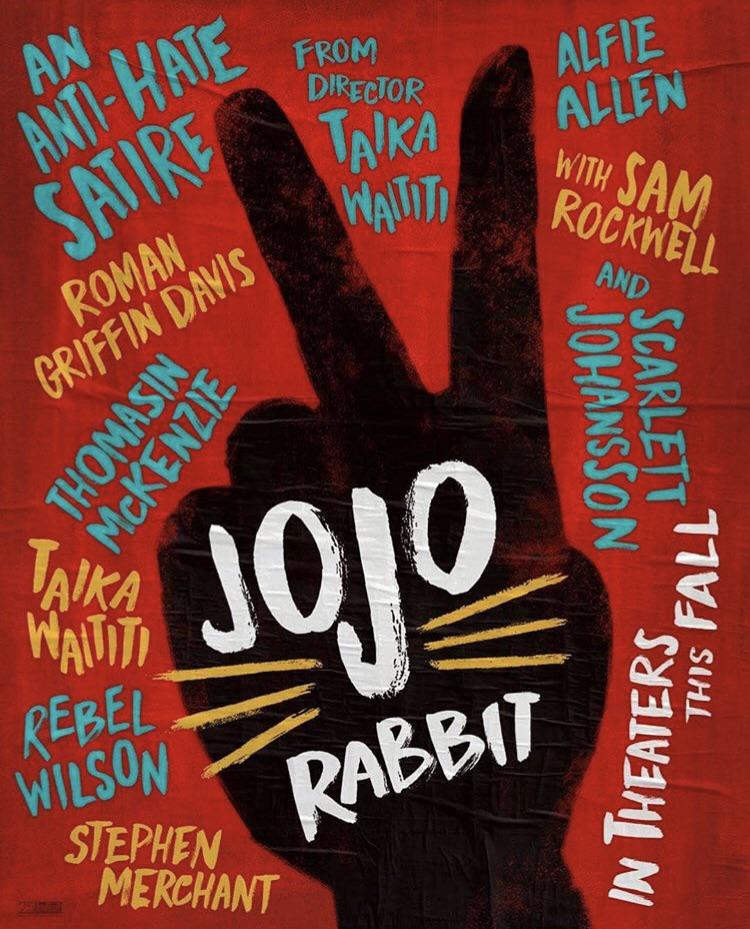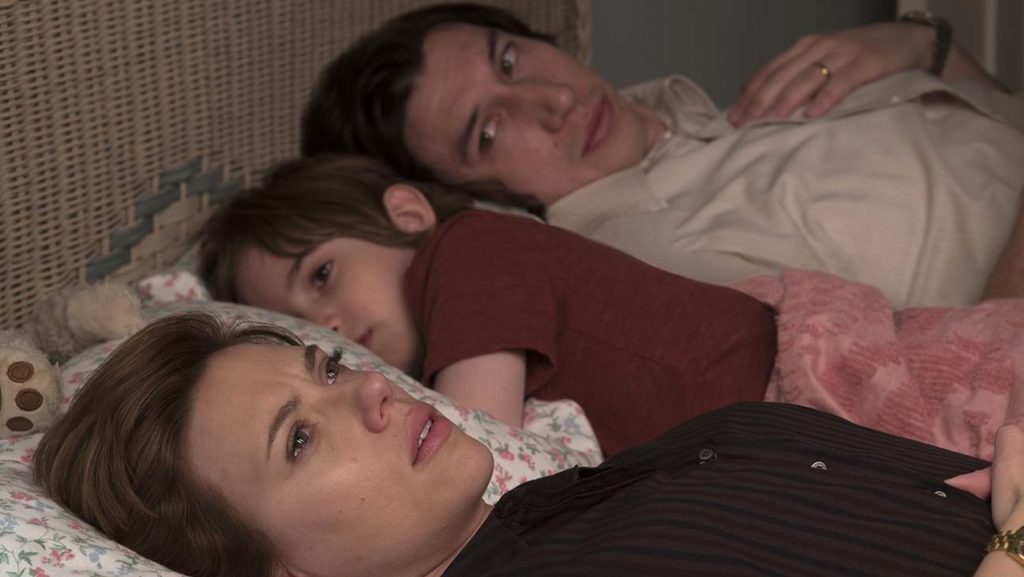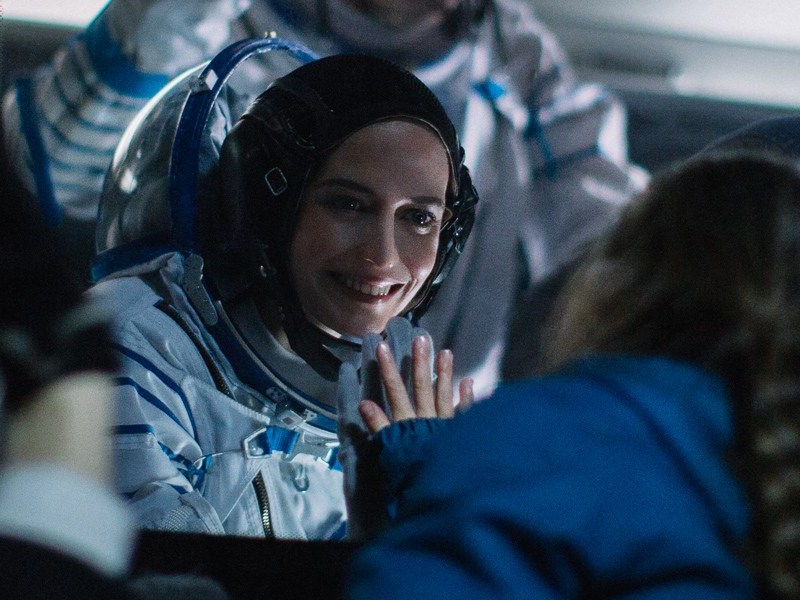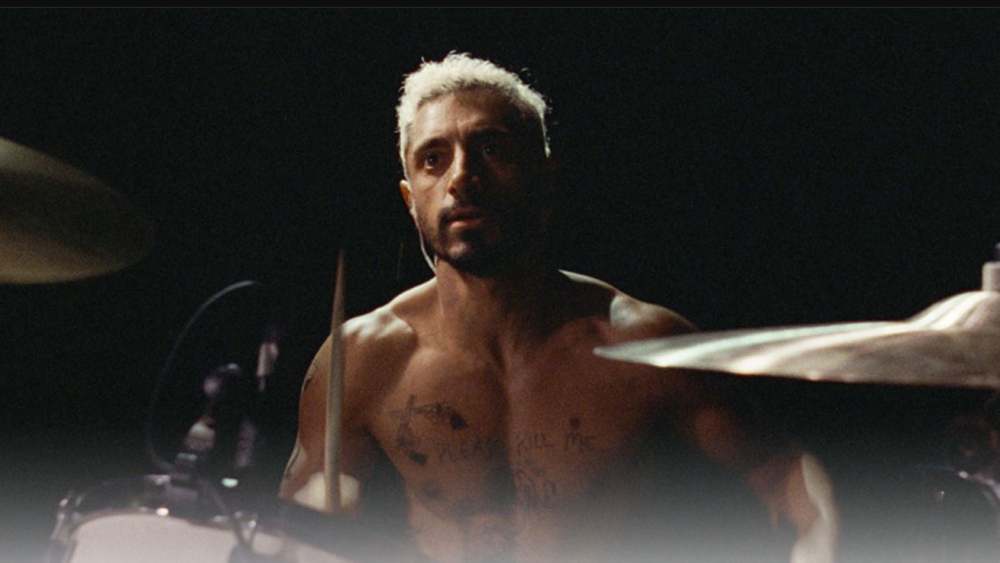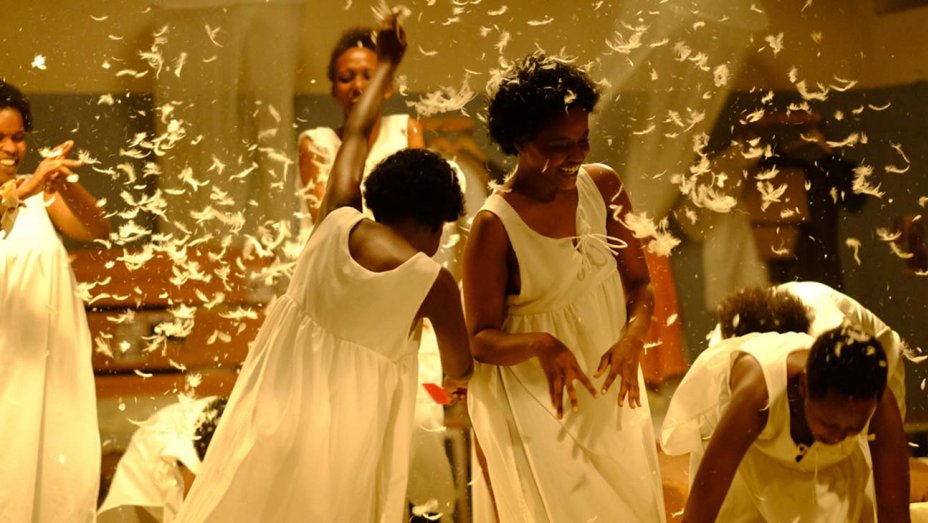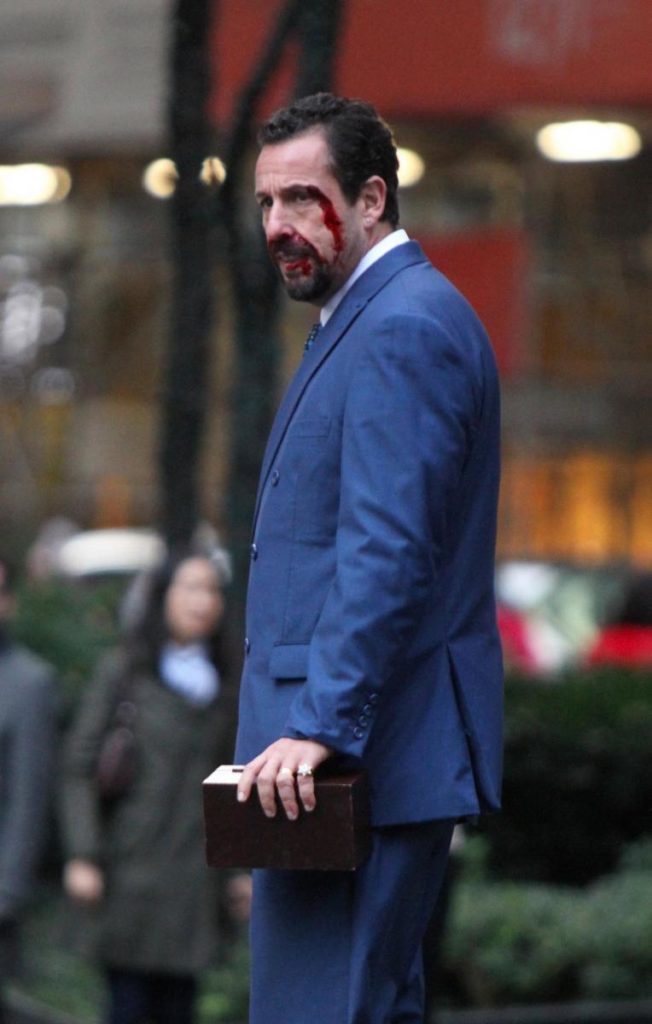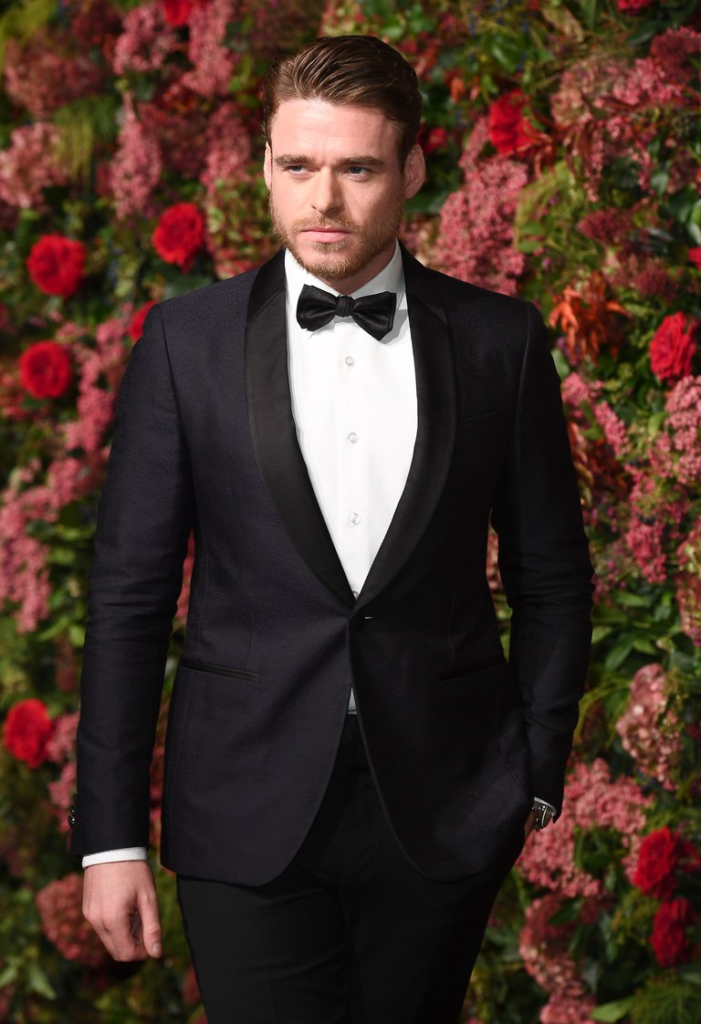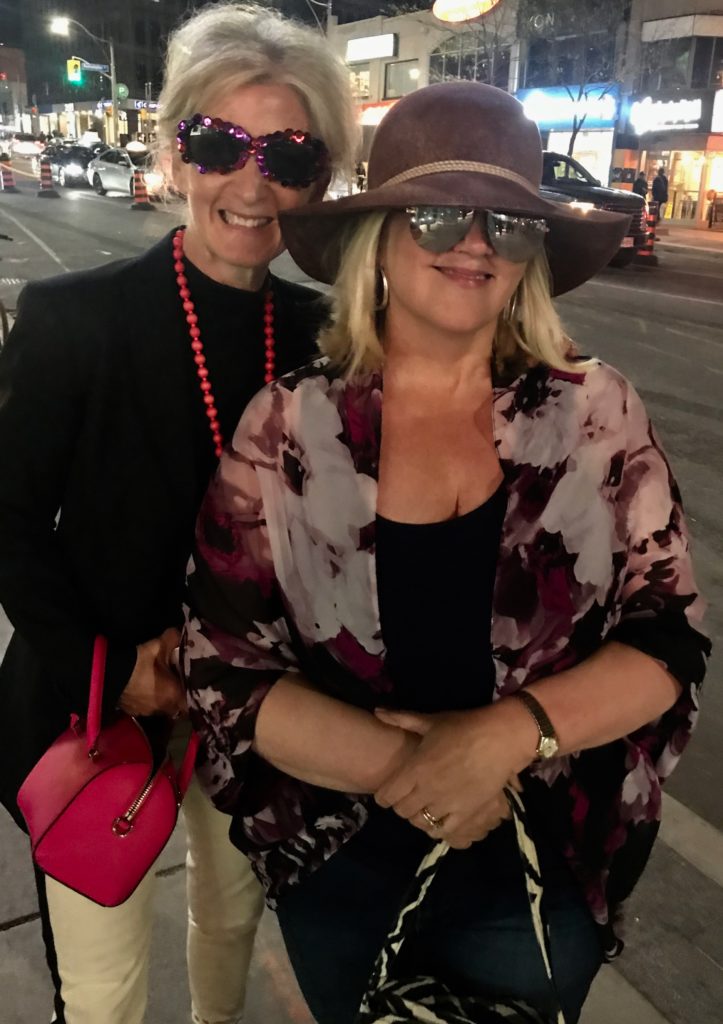
There is never enough time to see everything. TIFF is always about choices. I was lucky with mine. I missed out on all the award winners but saw some gems before COVID-19 sent me home, missing out on the last three days.
Peter and I are well into our second decade of sharing this annual cinematic blitz. I have been coming to see films at this Festival since volunteering when it wasn’t called TIFF but the Festival of Festivals. That was a million years ago.
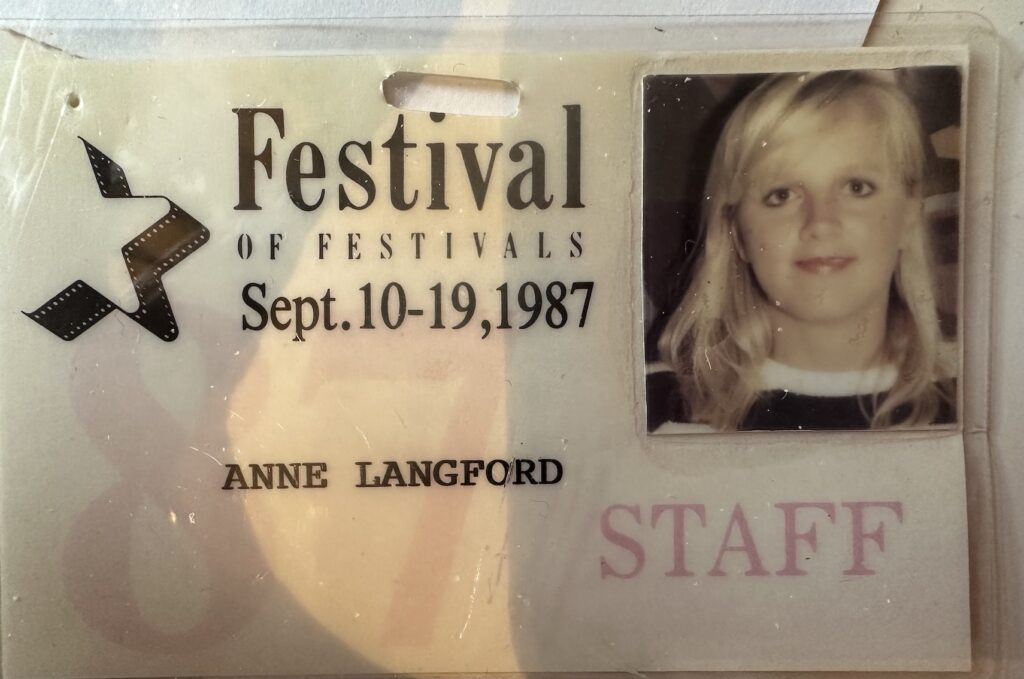
I did interviews during TIFF for a spell while working as an entertainment journalist for Global TV. Now, we are that couple who grin at each other when the lights go down…school is in session again, and we must suppress our giggles at our sheer delight that we are back.
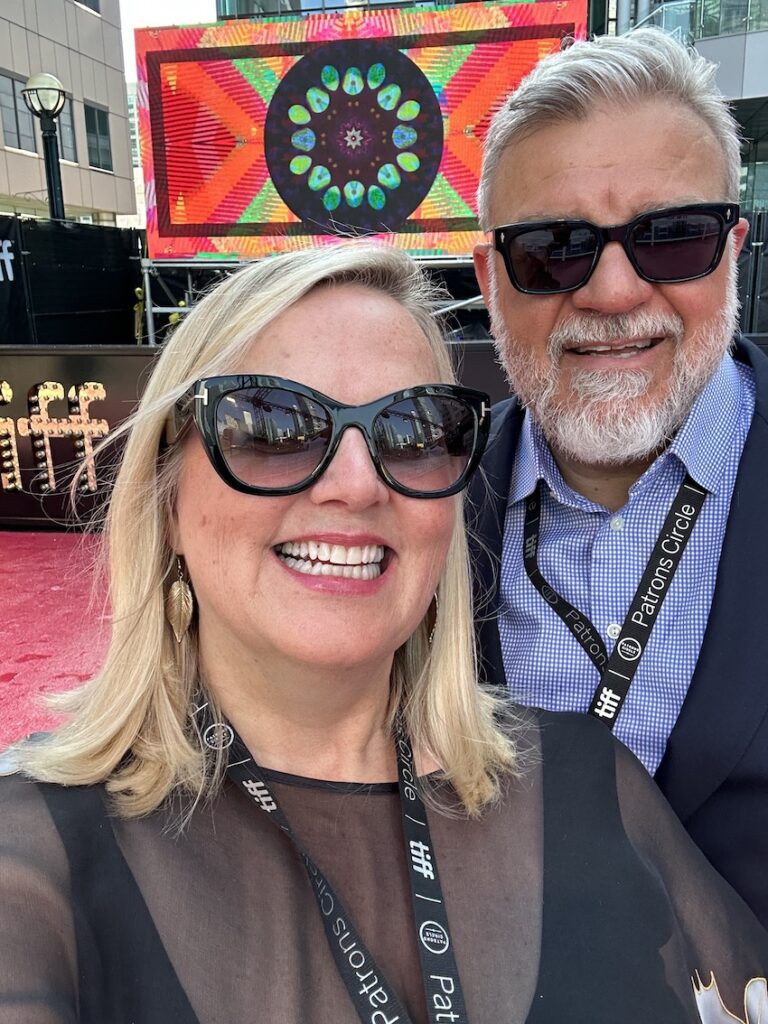
Ignoring the chatter about prestige films skipping Toronto in favour of other festivals was hard. Is it all because of the actors and screenwriters’ strike? Or is Toronto becoming a less palatable city to visit?
TIFF used to be the jewel in the crown.
Toronto lost the ecosystem celebrities bring when they show up to pump their films. The parties and fashion branding were missing; many people who made those events shine needed work in this city.
The buzz in every corner… I missed that. Thousands of creatives in one corner of the city, making plans, collaborating, scheming, sharing. That was missing this year.
My heart aches for all the actors and all the writers. All the crews that are out of work. All the new work shut down. Projects scuttled.
Directors did come to share their stories, and that’s my jam.
I was grateful that 70% of the Festival’s programme comes from independent and international producers. This year, TIFF programmers did their job once again with spectacular results, offering me glimpses into corners of the world I have never been to.
Favourite Films
Anatomy of a Fall
The setup: a successful German writer is charged with murder after their son finds her French husband dead at their chalet in the Alps. Did he commit suicide? Did she push him out the window? The film is less a whodunnit than a provocative exploration of marriage, parenthood and the essence of truth and the collective gaze: all of us implicated in ambiguity. This is a must-see for anyone in a long-term relationship, as it will hit all sorts of buttons. French director Justine Triet co-wrote this legal thriller with her partner, writer/director Arthur Harari, but insists neither wrote along gender lines. Instead, they switched back and forth to ensure parity. As the lead, Sandra Hüller delivers the most commanding performance of the year. She is simply masterful. I could not take my eyes off her throughout this gripping story, all of it coming to a crescendo in a spectacular courtroom scene. While accepting the Palme d’Or in Cannes in May for this film, Triet caused controversy by expressing solidarity with protests over social reforms and creative diversity in France. I know only this: this talented artist made a fabulous film. Of all my screenings, this one tops my list.
Monster
Another puzzle film, another story about truth, and another stunning work of cinema by Japanese director Hirokazu Kore-eda. As the film begins, it focuses on a single mother attempting to solve the mystery of her son’s disturbing behaviour change. But wait…there is a second and third act, as the film starts again, then again, alternating perspectives as we learn more about this child and his world. There are no spoilers here, as the intricate parts are purposeful and necessary. I cried at the gorgeous scenes of childhood dynamics, just as I did when I saw Kore-eda’s Shoplifters which won the Palme d’Or at Cannes in 2018. Also notable here was the spectacular soundtrack by legendary musician Ryuichi Sakamoto, who died earlier this year. When the film ended, the young man beside me had tears in his eyes. I did, too. We both sighed and shared a hug. There are no strangers in these moments.
The Zone of Interest
Tiff programmer Doroto Lech told our audience, “You are about to see the most important film of the year, if not the decade.“
Can any film live up to such a headline?
This film pulls off a clever and supremely sobering conceptual trick. We are introduced to the family of Auschwitz commandant Rudolph Höss in their dream house right next to the camp… right over the fence. The film, adapted from Martin Amis’ 2014 novel, depicts their everyday bucolic life. Ordinary bourgeois people. Children go to school or play in the lush gardens; their mother (Sandra Hüller) opines about her blooms and finding her “paradise.” British director Jonathan Glazer shot this film with hidden static cameras. To assume a critical distance, Glazer allowed no point-of-view shots. The characters move in and out of frame. They live in the shadow of the camp, but there is no confrontation with reality. Here before us is the ultimate banality of evil.
Glazer chose not to reenact any of the violence.
“People are already aware of those horrors. The images live in our heads“.
Instead, he used sound to interpret the world on the other side of the fence, effectively creating two films…the one you see and then the one you hear. This film’s soundtrack was more disturbing than any other screened this year. Apathy, complicity, disassociation: this is the conversation Glazer wants us to have. And so we shall. No other film will creep under your skin as slyly.
His Three Daughters
Anyone who has witnessed the death of a parent will connect with this intense drama about three estranged sisters who come together at their father’s bedside in his dying days. Carrie Coon is the control freak sister, Elizabeth Olsen is the anxious peacemaker, and Natasha Lyonne is the chain-smoking youngest, ready for a break after assuming the central caregiver role for the past year. What lifts this from an everyday maudlin trope is a beautiful script from writer/director Azazel Jacobs and formidable acting talent. All three actors deliver mesmerizing portraits. Jacobs also edited his film, and the result is an essential film about loss and that strange sense of time collapsing and elongating for those witnessing a loved one fade away. In 2019, I lost my beloved dad and then, within months, my dear father-in-law. The idea that siblings all play a role in inhabiting that sacred space rang authentic to me.
Ru
Ru is one of three excellent Canadian films I saw at TIFF. The story was written by Kim Thúy, who fled with her family from Vietnam in 1975 to a refugee camp in Malaysia before landing in Quebec. I read her novel a decade ago, which won the Governor General Award and was pleased to see this beautiful adaptation from Quebecker Charles-Oliver Michaud. The entire experience of watching one long shot after another was akin to snuggling by the fire with a book and a blanket. The film is full of stunning visuals, a beautiful score and a tight cast handily delivering the story of forced migration with tremendous heart. In her first film role, the lead, Chloé Djandji, showed up at the film’s premiere to delight us all with stories about life on her first set. Her excitement was contagious. Thúy, the film’s producer, was also on hand at the premiere, jumping up and down with elation.
I Don’t Know Who You Are
Brace yourselves. This was the advice given to us before watching this Toronto production about a musician desperately trying to pull together funds for HIV-preventive treatment after potential exposure from an assault. Toronto musician and poet Mark Clennon plays out the panic with a dazzling performance filling the screen in every shot, a star turn thrilling to behold. Director M. H. Murray studied film at York University, and this is his own harrowing life story, adapted first for a short film and now made into this stunning micro-budget first feature. Most of the film was shot in Clennon’s own Toronto apartment. I loved the warmth permeating much of this story, lifting it, in many moments, from hopelessness. The mix of it, the panic and the passion, never wanders from the underscore of urban strife. To those who believe a great film is made only with massive budgets, here is proof that artistry bursts from the tiniest cracks.
Screening this film also offered one of my TIFF warm fuzzies. In front of me was a whole row of the filmmaker’s family members, including a proud aunt who assured me I was about to see something wondrous. We connected, that aunt and I. She was bang on.
Days of Happiness
Another excellent Quebec offering, this one from Montreal writer/director Chloé Robichaud, is about a gifted conductor struggling to get control over her career. A compelling portrait of a young perfectionist as she works through a thorny emotional map with her family, and her lover comes alive with a note-perfect performance from Sophie Desmarais. What truly soars, though, is the musical backdrop. Montreal Métropolitain Orchestra principal conductor Yannick Nézet-Sequin acted as artistic consultant here, and the film’s orchestral sequences, filmed as three acts, are majestic to see and hear. Feel the Music sounds like a cheesy tagline. Here, it is the doorway to understanding and harmony.
Concrete Utopia
If you like disaster movies and black humour, this is your film. My Korean-Canadian seatmate assured me this director would knock my socks off. She and her seven sisters spent the pandemic having watch parties of Um Tae-hwa’s films. Representation matters. TIFF does this better than any festival in the world. After a massive earthquake, one single apartment stands in the city of Seoul. The residents band together to keep what they have to themselves and create their own Utopia. So begins the parable. Things quickly become messy and chaotic; lines are drawn, and foolish men fall. Much of this film is satirical and then melodramatic. The thriller pace makes for riveting stuff, as in any post-apocalyptic epic and here is a cast who made it all believable. The young couple, played by Park Seo-jun and Park Bo-young, are at the story’s heart. As the newly elected leader of the apartment tenants, actor Lee Byung-hun has the most work to do as loyalties shift and his own story comes into the fray. Expect this to be a monster hit.
Les Undesirables
Again, housing, or the lack thereof, is the focus as we move from Korea to France. Director Ladj Li’s incendiary follow-up to his acclaimed 2019 debut, Les Misérables is again set in a Parisian suburb, where the newly appointed mayor sets upon rehabilitating a working-class neighbourhood. A young community worker, played by newcomer Anta Dias, fights to keep her family and their friends in the home where they grew up. Now and then, a scene presents itself in the middle of many TIFF screenings that takes your breath away. The film around it may be imperfect, but this one scene is so potent it sticks with you through the rest of the Festival. And so it was here in this film, as the housing project is evacuated forcefully by local police, residents are ordered to leave with minutes to spare, and we are taken in and out of this frenzied space as hell soon breaks out.
This director grew up and lived in these suburbs and again serves up severe tension on his platter of social commentary. High marks for nailing the issue of our time. Less successful is the broad strokes of his villains.
Achilles
I love seeing films in the Discovery section and stumbling upon a talented new voice. Writer/director Farhad Delaram’s feature debut follows a filmmaker who has given up his work in despair over the political repression in Iran. Working now as an orthotist in a crumbling hospital, our protagonist Achilles meets a sedated political prisoner in the restricted psych ward and snaps out of his malaise to free her. This begins a journey around the country, all shot on location. Delaram worked on this film as the crackdown on protesters unfolded around him in real time, and he could not get his two lead actors’ visa clearance to attend the Festival. Most of this film comes from his own experience of suffering to make the kind of art he wanted. This road movie has poetry in image and symbolism, and I am eager to see what this filmmaker does next.
Nyad
Another thrilling ride comes from the doc team, who scooped an Oscar for Free Solo, this time on the ocean. The film is based on the real-life story of American long-distance swimmer Diane Nyad, as she resumes training at the age of sixty to realize a long-ago dream to become the first person to swim from Cuba to the US without a shark cage. Sixty-five-year-old Annette Bening inhabits this role ferociously…there is no scene where she becomes anything less than the arrogant, driven Diane. As her best friend and coach for this crazy caper across dangerous waters, Jodie Foster matches her frame for frame. There is so much to root for here. Both of these fine actors, in their prime, gorgeous lined faces—so rare in Hollywood it’s almost shocking —making every scene sing. The whole time Jodie is on screen, I was smiling- why is she not in a million more movies? She is just So DAMN GOOD. Co-directors (real-life partners Elizabeth Chai Vasarhelyi and Jimmy Chin ) are at the top of their game in their first narrative feature outing, zipping back and forth through archival material and current timelines. Actor Rhys Ifans is also terrific as the navigator with the guide boat. I loved it all and wanted to stand up and cheer, whether she made the swim or not. Cheer for the third act. I’ll be there soon. I need to remember the message. Never Give Up.
Hit Man
Let’s get this out of the way first: I love Richard Linklater movies… most of them. Boyhood slayed me. The Before trilogy inspired me. I was excited to see his latest, Hit Man, and delighted to find he didn’t disappoint. Finding comedy at TIFF is rare and always welcome. Linklater tucks the comedy into a simple sauce of film noir narrative. Hit Man stars Glen Powell, who co-wrote the script, as a professor by day and an undercover police operative at night. How he becomes a hitman is immaterial, but when he does, he begins a series of hilarious costumed setups that allow Powell to show off. The charismatic actor is at his career best when he connects with his co-star, Adria Arjona, a woman who needs her husband killed. The chemistry between them is fun to watch: here is the sexiest couple of the Festival. This film brought to mind one of those pop songs that you can’t figure out why has stuck with you all those years later. The hook is simple, straightforward, and smart. It’s never as easy to pull off as it goes down.
Frybread Face and Me
Billy Porter is a Navajo, Hopi, and Laguna Pueblo filmmaker known for documentaries. In his narrative feature debut, he brings some of those doc skills to a touching coming-of-age story that kept me smiling the whole time. Most of the cast had never acted before, and their naturalism never appeared hokey under Porter’s guidance. The plot was simple enough. Benny’s parents are divorcing, so he has to leave San Diego and head to rural northern Arizona to live with his Nahajo grandmother, who doesn’t speak English. There, he meets up with his cousin Dawn, otherwise known as Frybread Face. Their relationship is the apparent sweet spot of this lovely, gentle film, but the most potent scenes were between the beautiful grandmother and Benny, played by young new actor Keir Tallman. Cultural awakening may have been the thesis, but family is family anywhere. For all those who wonder if film festivals deserve the hoopla, this is the film that festivals are made for.
Arthur & Diana
Siblings Arthur & Diana are on a road trip from Berlin to Paris with Diana’s two-year-old son, Lupo. Bickering ensues, and various hijinks, including a run-in with the police, a beach party, and a detour through Italy. The action seems random, and plot points appear without much explanation. It shouldn’t work as well as it does, but there is a purposeful pulse to director Sara Summa’s Euro circus, down to the film’s colour grading. Shot on three cameras (Mini DV, Betacam and 16 mm), the result is a lovely nostalgic vibe. All of this was boosted by a wonderful score by Summa’s real-life partner, Ben Roessler. I fell for it all. This was Summa’s film school graduate project. And here’s the kicker. In the best use of auto-fiction I’ve seen in ages, Summa and her real-life brother play Arthur and Diana, a version of themselves. The toddler in the film is Summa’s real-life child who steals every scene. The cuteness should be annoying, but it never was. These people managed to be equally charming in the Q&A following the premiere, where Summa calmly answered questions about film technique as her now three-year-old son goofed around on stage. At one point, a baby cried off in the distance. ” sorry, that’s my three-month-old,” shrugged Summa without missing a beat. TIFF has worked hard to spotlight female directors; I see more of them yearly at this Festival. This was a leap in every direction. I am woman; hear me roar.
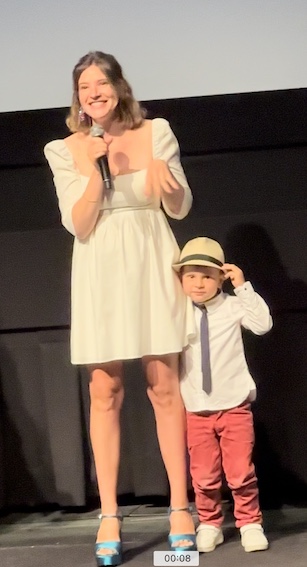
Dream Scenario
This was the wildest ride at TIFF this year (and no, I don’t do Midnight Madness where wild reigns… although Peter did for a long while). Nicolas Cage is a bland, tenured professor who suddenly discovers he appears in other people’s dreams… lots of people and lots of dreams. I won’t give much away as that is all you need to know other than what begins as a laugh-a-minute setup soon slides into absurd horror and a brilliant and handy guide to the hell of celebrity. Norwegian director Kristoffer Borgli, a clear favourite among the hipster crowd, wrote and edited this clever film and told our audience he loved introducing the picture to us as the film was shot in Toronto.
I don’t know how many of you are accustomed to film festivals and how we see movies at festivals but let me just walk you through it. You are going to sit and watch the movie and you can react the way you want to react…everything is okay…Once the movie is over, we are going to see the credits and sit through them to pay respects as a lot of people here in Toronto worked on it…and then, after the the credits, you’ll do a standing O…that’s industry standard. I’d recommend ten minutes but each to their own. Then we’ll do a little Q & A.
Our audience roared and gave him what he wanted. Look for the film to be released by A24 in theatres on November 10th.
Good but flawed: the B List. See them on your couch.
Knox Goes Away
It’s fun and well-made… it’s always good to see Michael Keaton…but forgettable.
Last Summer
A middle-aged lawyer has an affair with her teenage stepson. It so wants to be provocative. I just found it icky. And the sex was lame and non-believable.
Royal Hotel
Julia Garner is immensely watchable, yet the message is overkill. I just kept asking why these intelligent, capable women were so dumb. The men are all dicks. Which was evident from the get-go.
The Boy and The Heron
Stunning animation, breathtaking, really. Too bad about the convoluted plotline.


